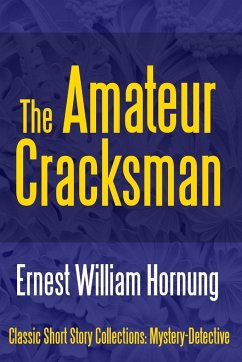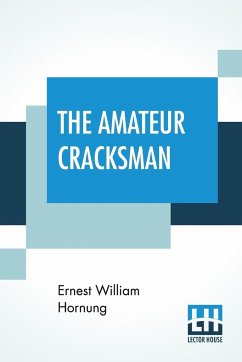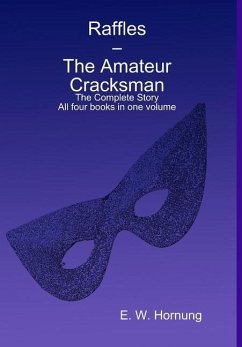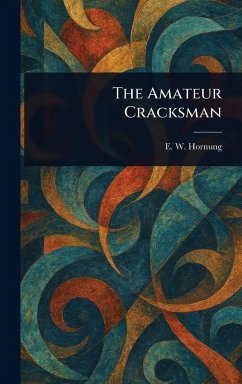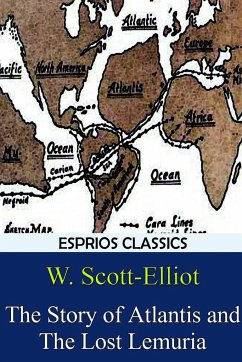Nicht lieferbar

The Amateur Cracksman (Esprios Classics)
Versandkostenfrei!
Nicht lieferbar
The Amateur Cracksman is an 1899 short story collection by E. W. Hornung. It was published in the UK by Methuen and Co., London, and in the US by Scribner's, New York. Many later editions (T. Nelson and Sons, 1914; University of Nebraska Press, 1976; et al) expand the title to Raffles: The Amateur Cracksman. It was the original short story collection by Hornung, featuring his most famous character, A. J. Raffles, a gentleman thief in late Victorian Great Britain. The book was very well received and spawned three follow-ups: two more short story collections, The Black Mask (1901) and A Thief in...
The Amateur Cracksman is an 1899 short story collection by E. W. Hornung. It was published in the UK by Methuen and Co., London, and in the US by Scribner's, New York. Many later editions (T. Nelson and Sons, 1914; University of Nebraska Press, 1976; et al) expand the title to Raffles: The Amateur Cracksman. It was the original short story collection by Hornung, featuring his most famous character, A. J. Raffles, a gentleman thief in late Victorian Great Britain. The book was very well received and spawned three follow-ups: two more short story collections, The Black Mask (1901) and A Thief in the Night (1904), as well as a full-length novel, Mr. Justice Raffles (1909).




